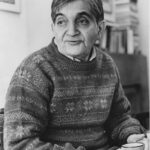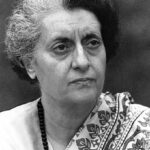20 Powerful Facts About Mahatma Gandhi That Will Inspire You
Mahatma Gandhi, known as the “Father of the Nation” in India, was not just a leader but a movement in himself. His philosophy of non-violence (Ahimsa) and truth (Satyagraha) changed the course of history, leading India to independence and inspiring global movements for peace and civil rights.
Even decades after his passing, Gandhi’s teachings remain relevant in everyday life, influencing politics, ethics, and social change. This article explores his biography, daily life impact, significance, and 20 incredible facts that make him a timeless figure.
Early Life and Education
1. Birth and Childhood
Mohandas Karamchand Gandhi was born on October 2, 1869, in Porbandar, Gujarat, India. His father was a respected government official, and his mother was deeply religious, influencing his later commitment to simple living and morality.
2. Education and Influence
Gandhi traveled to London in 1888 to study law at University College London. While there, he was influenced by vegetarianism, spirituality, and moral discipline, shaping his ideology.
3. Transformation in South Africa
After moving to South Africa in 1893, Gandhi witnessed racial discrimination firsthand. A turning point was when he was thrown out of a train for refusing to leave a first-class compartment. This experience ignited his lifelong fight against injustice.
Gandhi’s Role in India’s Independence
4. The Birth of Satyagraha
In 1915, Gandhi returned to India and launched Satyagraha (nonviolent resistance) as a tool against British rule.
5. The Champaran and Kheda Movements
His first major victories were in Champaran (1917) and Kheda (1918), where he fought for farmers’ rights against exploitative British policies.
6. The Non-Cooperation Movement (1920-1922)
Gandhi urged Indians to boycott British goods, institutions, and services, marking the first mass protest against colonial rule.
7. The Salt March (Dandi March) – 1930
One of his most iconic protests, Gandhi walked 240 miles to Dandi to defy the British salt tax, proving the power of nonviolent resistance.
8. Quit India Movement (1942)
During World War II, Gandhi called for complete independence, leading to mass protests. Though arrested, his call strengthened India’s freedom movement.
Daily Life and Philosophies That Still Impact Us
9. Simplicity and Minimalism
Gandhi believed in “simple living, high thinking.” He wore only a dhoti and spun his own cloth, emphasizing self-reliance.
10. Vegetarianism and Health
He followed a strict vegetarian diet, advocating for healthy eating and fasting as a form of self-discipline.
11. Truth and Honesty
For Gandhi, truth (Satya) was the ultimate principle. He believed in always speaking and acting truthfully.
12. Non-Violence as Strength
He taught that “Ahimsa is not the absence of violence but the presence of love.” His philosophy remains central to peace movements worldwide.
13. Women Empowerment
Gandhi fought for women’s rights, education, and participation in politics, calling women the “torchbearers of freedom.”
14. Education and Self-Reliance
He believed in practical education, encouraging skills like weaving, farming, and self-sufficiency over rote learning.
Global Influence and Significance
15. Inspired Leaders Across the World
- Martin Luther King Jr. used Gandhi’s principles in the American Civil Rights Movement.
- Nelson Mandela applied his teachings in the fight against apartheid in South Africa.
- The Dalai Lama follows his philosophy of nonviolence in Tibet’s freedom struggle.
16. A Symbol of Peace and Unity
Gandhi is celebrated worldwide as a peace icon. His birthday, October 2, is observed as International Day of Non-Violence.
17. Contributions to Indian Society
- Fought against untouchability and caste discrimination.
- Advocated for rural development and self-sufficiency.
- Promoted Hindu-Muslim unity to prevent communal conflicts.
20 Surprising Facts About Mahatma Gandhi
- He was nominated for the Nobel Peace Prize five times but never won.
- His favorite song was “Vaishnav Jan To,” which spoke about compassion and selflessness.
- He corresponded with famous leaders like Albert Einstein and Leo Tolstoy.
- He practiced silence (maun vrat) once a week, believing in the power of inner peace.
- He walked nearly 18 kilometers daily, making physical fitness a priority.
- His autobiography, “The Story of My Experiments with Truth,” remains a bestseller.
- He was against partition but accepted it reluctantly to prevent further bloodshed.
- He was a skilled writer in English, Hindi, and Gujarati.
- He designed the first version of India’s national flag in 1921.
- He was inspired by Bhagavad Gita, Jesus Christ, and Jainism.
- His principles influenced the UN’s peace initiatives.
- His assassination was mourned worldwide, with leaders calling it a loss for humanity.
- He believed in karma and the power of selfless action.
- He founded the Sabarmati Ashram in Ahmedabad, a hub for India’s independence movement.
- He never held any official government position in independent India.
- Despite being a freedom fighter, he was against war and militarization.
- He promoted natural medicine and traditional Indian healing techniques.
- He gave up wearing Western clothes after facing racism in London.
- He led the “Harijan” movement to uplift Dalits and oppressed communities.
- He believed the greatest way to serve God was to serve humanity.
FAQs About Mahatma Gandhi
Q1: Why is Mahatma Gandhi called the ‘Father of the Nation’?
He played a crucial role in India’s freedom struggle through nonviolent means, earning the title from Netaji Subhas Chandra Bose.
Q2: What was Gandhi’s biggest achievement?
Leading India to independence through peaceful resistance and civil disobedience.
Q3: How can we apply Gandhi’s principles in modern life?
By practicing honesty, non-violence, simplicity, and sustainability in our daily lives.
Q4: Did Gandhi believe in technology and modernization?
He supported self-reliance and rural development but was cautious about technology that widened inequality.
Q5: What is Gandhi’s greatest lesson for today’s world?
That love, truth, and non-violence are stronger than hatred and violence.
Final Thoughts: Gandhi’s Timeless Legacy
Mahatma Gandhi’s teachings are more than history—they are a way of life. His philosophy of truth, non-violence, and self-discipline can still solve many of today’s problems, from social injustice to environmental issues.
His life proves that one person can change the world, not with weapons, but with wisdom, courage, and compassion. Let’s remember his lessons and strive to build a better, more peaceful world.
💬 What is your favorite Mahatma Gandhi quote? Share in the comments below!











I like the valuable information you provide in your articles. I will bookmark your weblog and check again here frequently. I am quite sure I’ll learn many new stuff right here! Good luck for the next!